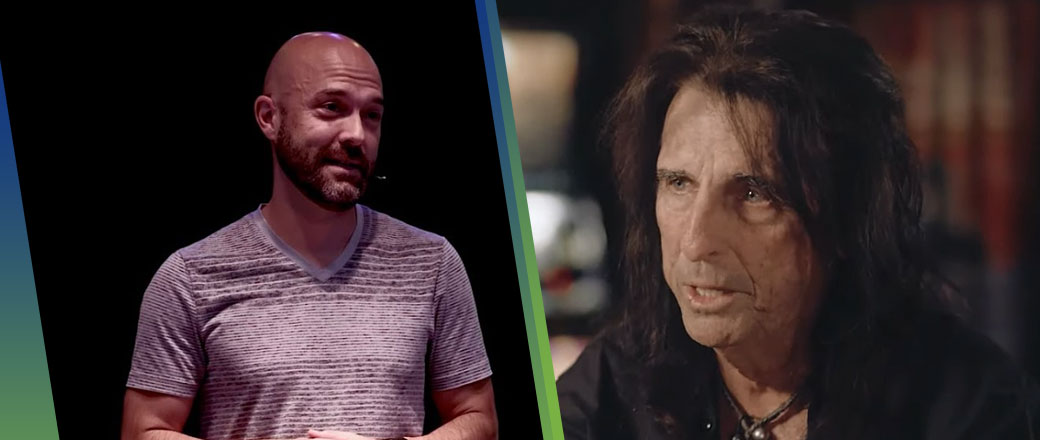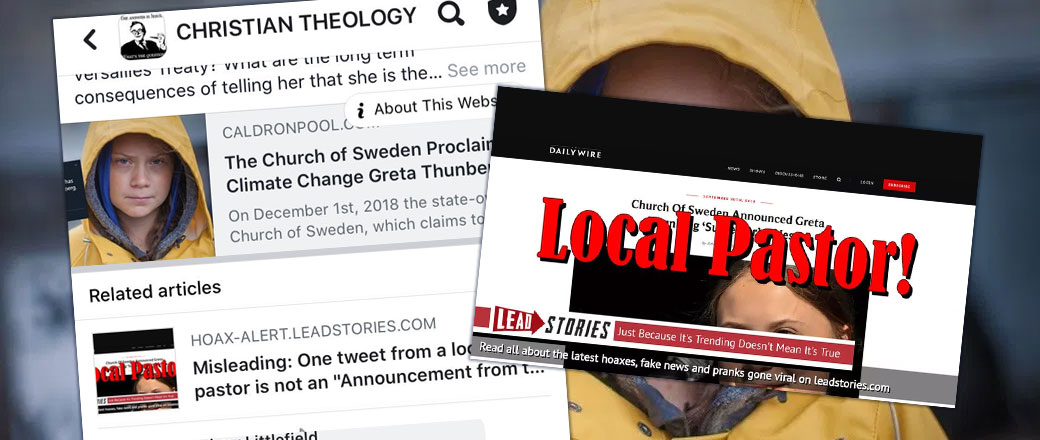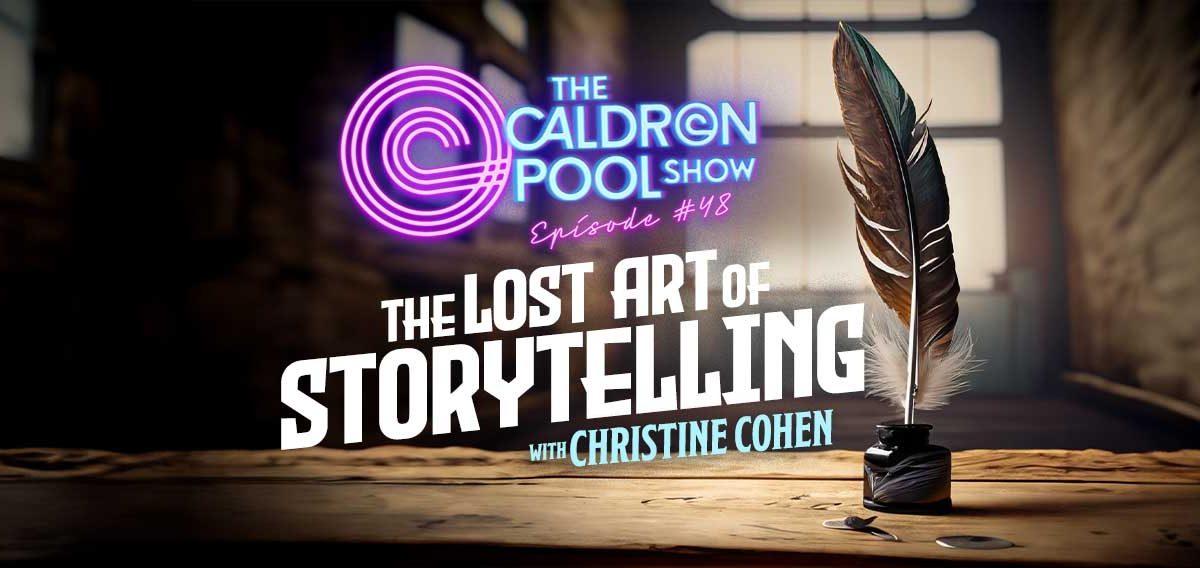American author and Pastor, Greg Laurie’s interview with Alice Cooper is an insightful look into Christian life outside a cloistered Christian culture. The interview was uploaded to YouTube on the 18th of August. Cooper calls himself a prodigal son and gives some background on his life, including his abuse of cocaine, alcoholism, his 43-year-old marriage, the Church and his return to Christ.
Though unrelated, the interview presents a stark contrast between Alice Cooper and bestselling ‘Christian’ author, Joshua Harris.
I related to it because I came to Christ through the broken, dark alleys of life. I found home through darkened lyrics, written by broken people, who reflected my own dysfunctional context. Whether they intended it or not (I certainly didn’t see it at the time), they were being used to point me to the foot of the cross.
Though I acknowledge that having a firm connection with other Christians (fellowship) is important to Christian discipleship, I never found the way home to Christ by trying to fit in with the first-row, Sunday-only-Christians, who seemed to always look past me and my dysfunctional context with contempt and fear.
Thank God that He does not dwell in temples made by man, but reaches for us in the richness of relationship, made known to us through His revelation in Jesus Christ; an act that He Himself being free from religion, freely initiates in order to dwell amongst us, so that we may be freed from bondage to sin; free for Him and free for others.
I hear that Biblical theme brought to life in this interview.
It’s another reminder that God, in His Son, through the Holy Spirit, is still at work in the world. The reminder that when the mainstream Church misses the point or fails to reflect this solid theological truth, God, in His sovereignty breaks through the clumsiness, pride and stale idolatry of some Christians, reminding us that the Church is His, not ours. It also reminds us that the Church must mature beyond its four walls, rediscovering the fact that its sustenance and continuation doesn’t rest in bricks and mortar, or immaculate attendance records, but on the providence of God, and His fatherly Lordship shown towards us in Jesus Christ.
As Cooper worded it, “I don’t think we accept Christ, I think we accept the fact that He accepted us“. He mentions the importance of hearing about God’s mercy and judgement. Stating that he needed to hear about both God’s grace and the reality of hell, which “isn’t a place where we get high with Jim Morrison“, but a real consequence of sin.
For me, Laurie’s interview with Cooper reflects the truth that life with God, begins with, God with us. This is a truth I passionately teach my own kids by bringing the relevance of the Christ into contact with the culture. Not in fear of it, or in subservience to the culture, but in critique of it. The kind of critique that coincides with the joy of recognizing where God is at work in the world, and learning from this how we, as Christians, can boldly be in the world, but not of it.
Cooper exemplifies the notion that any division between the secular and the sacred is ultimately false. As Karl Barth noted when talking about John Calvin’s theology, ‘the rule that history is life’s teacher is the light of which Calvin could view secular history as sacred history…History must be for us a school in which we learn to regulate our lives in the knowledge that from the creation of the world God has at all times [in freedom & sovereignty] ruled in his church’ and the world. [i]
Alice Cooper, like Johnny Cash, embodies the reason for why we shouldn’t limit the reach of God’s grace. For, ’the wind blows where it wishes, and you hear its sound, but you do not know where it comes from or where it goes. So it is with everyone who is born of the Spirit.” (John 8:3).
The interview offers a correction of perception. One that involves grounded biblical theology which teaches us that trying to measure what constitutes the right to be called “Christian” is problematic. The criteria falls short, if it doesn’t first and foremost involve a commitment to Jesus Christ, which acknowledges both God’s fatherly Lordship and triumph over sin. In sum, our response being secondary, it’s Christ’s performance that takes preeminence.
This is especially relevant when Joshua Harris’ public renouncing his faith, is contrasted with Alice Cooper’s public affirmation of his relationship with Christ. One can have a relationship with the Church, but not Jesus Christ. Going to Church, or parading Christian culture on our selves doesn’t make a person a Christian. Relationship with Christ does.
It’s amazing to witness encouragement for the Church coming from someone who’d not be welcome in some churches. The irony being where Harris would be welcomed, Cooper would be exiled. Yet, where Cooper still stands. Harris has walked away.
I’m not suggesting Alice Cooper’s example is the answer to the Joshua Harris’ of the Church, but Alice Cooper’s example should make some Churches rethink their commitment to valuing appearances over substance; reputation over character.
I’m with lay preacher, A.W. Tozer, who brilliantly said:
‘I cannot speak for you, but I want to be among those who worship. I do not want just to be part of some great ecclesiastical machine where the Pastor turns the crank and the machine runs […] Can true worship be engineered and manipulated? […] Engineers do many a great things in their fields, but no mere human force or direction can work the mysteries of God among men. If there is no wonder, no experience of mystery, our efforts to worship will be futile. There will be no worship without the Spirit’ [ii]
As Skillet’s John Cooper (no relation) told CBN recently, “we need to value truth over feeling.”
Joshua Harris, much the same as Rob Bell, are wake up calls for the Church. Falseness is too easy. False doctrine is too attractive. I think it’s fair enough to suggest that Harris became a product of his popularity, driven by worldly churchian culture, not the koinonia; ecclesia; or haustafeln. I say churchian (for lack of a better word), because I don’t think the problem isn’t easily pinned on just one denomination. The problem is shared across denominations. It’s a mindset cemented in an apathy (if not ignorance) that has rejected the five solas of the Reformers and put in their place the cheap grace of moral therapeutic deism.
I don’t think I’m alone in saying this, but I’d rather sit in a Skillet concert filled with long-haired friends of Jesus all dressed in black, and ruminate on some of the theological depth coming out of the lyrics over coffee afterwards, than sit before a hipster, watching them mindlessly repeating the equivalent of bumper sticker theology, like some Instagram-perfect churches do. Don’t get me wrong. That platform has its place, but the Insta-perfect culture shouldn’t be the quintessential standard for what it means to be a Christian in the world, but not of it; someone who is led by the Spirit, not the culture.
As Keith Green and Corrie Ten Boom said in their own way, being connected with a genuine Christian community is important, but it’s just as equally important to remember that a perfect church attendance record doesn’t save us; “going to church doesn’t make you a Christian anymore than parking your car into a garage makes you a car; just as much as going to McDonald’s doesn’t make you a hamburger.”
Alice Cooper, like others such as Brian ‘Head’ Welch of Korn, are an example for the Church. We mustn’t retreat back behind a closed, cushy cloister. The Church doesn’t need to. It just needs to drop the pretence of its own holiness, and let God’s holiness shine through the Churches honest presentation of the Gospel, and through the care for the community entrusted to it.
The Church, in the face of a culture determined to set the agenda, should aim to mature beyond the four walls and steeple it’s become known as being. For the Church, it cannot be a business or business as usual. The Church is we-the-people, with Christ at the head. If only for the fact that we never know who’s listening. The Church must end its navel-gazing, and make a keener effort to rediscover the origins of Christian community, which begins, is maintained, and ends with Jesus Christ.
There’s a lot more to this Laurie-Cooper interview than meets the eye.
He who has hears let Him hear.
References:
[i] Barth, K. 1922. The Theology of John Calvin Eerdmans Press, (pp.2, 3 & 17)
[ii] Tozer, A.W 2009, Whatever Happened to Worship? Authentic Media (pp.11, 60-61)



















